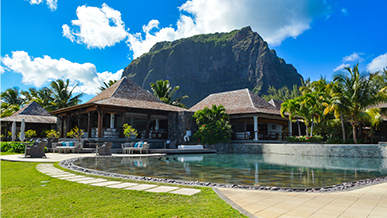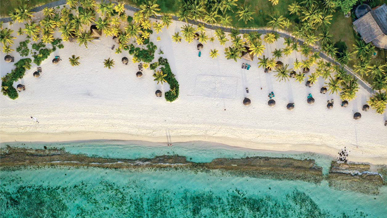This country is quickly becoming the next ‘Australia’ for South African expats
Mauritius is rapidly emerging as one of Africa’s big economic success stories, with its growth rate expected to increase by 75% in the coming decade, says Dani van Vuuren, business development consultant at Sovereign Trust.
With economic prosperity and job opportunities on the horizon, the island state of Mauritius has become a new place for relocation or startups.
One of the main drawing factors for the country is its attractive tax regime and low barriers to entry for both businesses and individuals.
The country has lower tax rates than South Africa, a broad network of double taxation avoidance agreements, and tax incentives offered to foreign investors. It has been on a drive to attract major foreign investment, and it is paying off.
According to Van Vuuren, corporate and personal income taxes are all taxed at a rate of 15%, with further tax concessions available.
“Mauritian tax residents are taxed on Mauritius-sourced income only, and there is no capital gains tax or inheritance tax. In addition, there are no foreign exchange controls, which offers the ideal gateway for international business expansion,” said Van Vureem.
The area’s rapid economic growth is making it a haven for high-net-worth individuals: they come for the business opportunities and stay for the idyllic island lifestyle, Van Vuuren said.
“Occupation and residence permits are freely available to foreigners wishing to work, invest, live or retire in Mauritius.”
For those hoping for a safer place to reside, Mauritius is also among the 20 safest countries in the world.
Mauritius offers a range of residency programmes to cater to different income brackets, including a residency by investment, occupation, professional, retirement or premium travel visa.
The following residency programs are currently available:
Residency by property investment – R6,898,63
This involves the purchasing of property on the island with a minimum value of USD 375,000.
This purchase can be made in certain property development or smart city schemes, and local banks are willing to lend non-citizens the money needed to make the acquisition and, depending on the bank, require a 30% contribution needed from the investor, said Van Vuuren.
Residency by occupation – R918,648
This type of residency is given for up to 10 years to investors who can invest at least USD 50,000, professionals who come to live and work in Mauritius, and people who want to start their own businesses on the island.
Residency by premium travel
This visa is a temporary visa for up to a year, which is ideal for digital nomads, granted you prove your income from outside sources.
Residency by retirement – Roughly R283,358
Residency through retirement is an option for non-citizens aged 50 and over, said Van Vuuren.
‘Retired non-citizens’ are able to open a Mauritian bank account and make an initial deposit of $1,500 (R23,618), followed by $1,500 a month or $18,000 (R283,358) a year for the duration of the permit.
Source : businesstech.co.za









